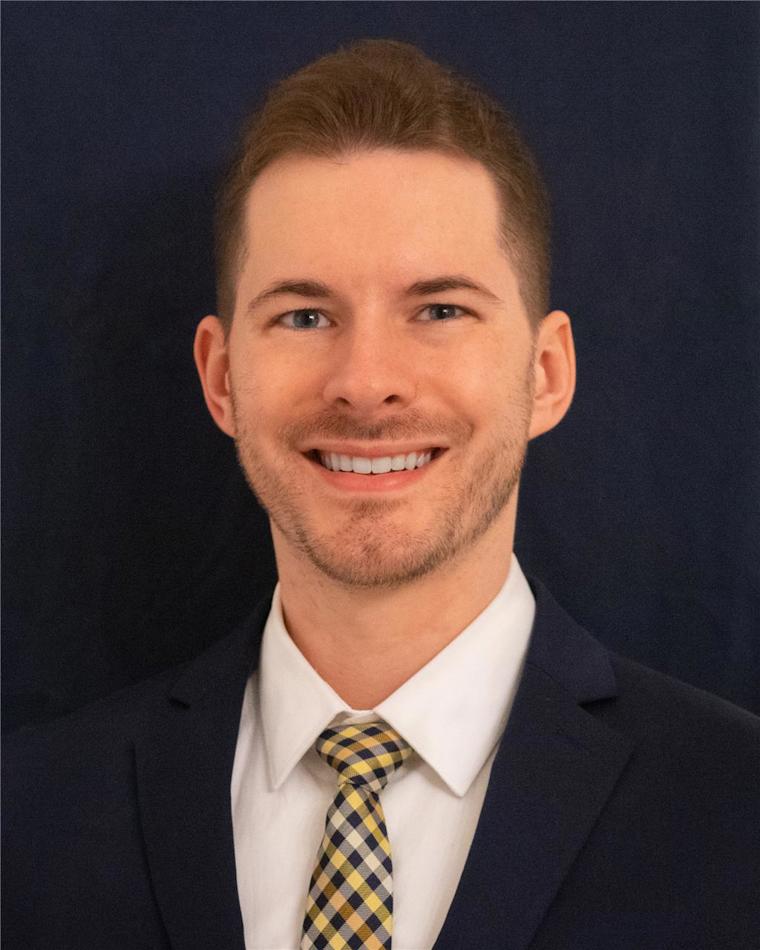This interview is one in a series of interviews with recipients of the 2020 ACGME Awards. The awardees join an outstanding group of previous honorees whose work and contributions to graduate medical education (GME) represent the best in the field. They will be honored at the upcoming ACGME Annual Educational Conference, taking place February 27-29 in San Diego, California.
2020 David C. Leach Awardee David Valentine, MD is a fellow in clinical neurophysiology at New York University’s Langone Health.
ACGME: Why did you want to become a physician?
Valentine: Medicine offers a unique combination of science and humanity that has always fascinated me, and neurology in particular is a field that treats the very thing that makes us who we are. So, as someone with an interest in both people and systems, medicine and then neurology seemed a natural fit.
ACGME: What, so far, has been the most rewarding part of your residency/fellowship?
Valentine: The friendships and collegiality, by far. Medicine is such a team sport, its been phenomenal working with and learning from people I can trust and enjoy being around.
ACGME: What has been the most challenging?
Valentine: Probably the most difficult is, of course, the initial learning curve (although that's also exciting) but then after that a sort of “imposter syndrome,” because you know you have a lot to learn still even as you go about your day doing clinical work and teaching things that you've already grown comfortable with.
ACGME: What innovation/improvement did you implement in your program?
Valentine: To help the transition from an internal medicine intern year to the neurology residency, we developed a one-week intensive “boot camp” for incoming adult and pediatric neurology and neuropsychiatry residents. In place of clinical duties for the first week of July, they completed a series of interactive didactics covering neuroanatomy and physiology, the neurologic exam, neuroradiology, lumbar puncture indications and procedure, neurologic emergencies, and common neurology consults (stroke, seizure, headache, neuromuscular crises, etc.). The week concluded with a case-based review.
In addition to this, considering that neuropathology was a common point of weakness for residents on the RITE [Residency In-service Training Examination] exam, I developed a longitudinal question-based curriculum centered around several weekly neuropathology, electrophysiology, or neuroradiology images, then provided in depth answers to those questions the following week. Across the span of the year, a broad array of high-yield topics tested on the RITE or neurology boards was covered in a spaced repetition pattern to facilitate long-term retention of the material.
ACGME: What does it mean to you to receive this award?
Valentine: Throughout my education I’ve had so many incredible mentors and friends, and each of them has challenged me in a multitude of ways to grow as a doctor and as a person. Awards like this are, I think, less a recognition of a single person than of the myriad people who have guided that person and others, and the importance of continuing to educate and mentor one’s coworkers and future learners.
ACGME: What advice would you give to other residents/fellows who are looking to either replicate your improvement or implement an original idea of their own in their own program?
Valentine: The biggest thing is just knowing what you want to do, and then finding the support to help get it done. Whether that's from administration, co-residents/fellows, or others, finding your team is probably the most important part.

